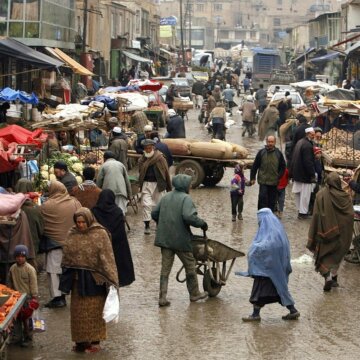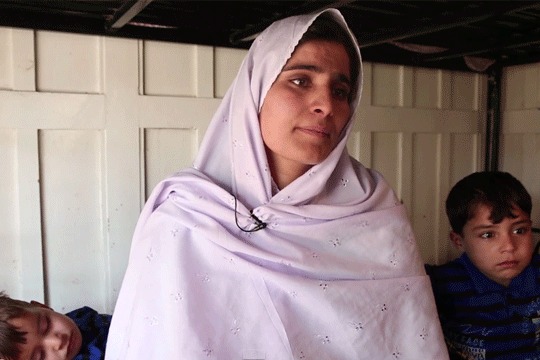- About
- Topics
- Picks
- Audio
- Story
- In-Depth
- Opinion
- News
- Donate
- Signup for our newsletterOur Editors' Best Picks.Send
Read, Debate: Engage.
| topic: | Peace and Reconciliation |
|---|---|
| located: | USA, Qatar, Afghanistan |
| editor: | Shadi Khan Saif |
One single takeaway lesson from the modern turbulent history of Afghanistan is that its richly diverse physical and human geography can serve perfectly well towards its prosperity, but has long been subjected to bids for totalitarian systems of governance.
As the stage has finally been set in Doha for the warring Afghan parties of the war theatre to settle down differences through talks in the Qatari capital, the Taliban showed this inclination yet again.
With zero representation of women and almost zero representation of minority ethnic groups, the hardliner group entered the landmark peace parley to decide the fate of this richly diverse country.
In a well-orchestrated display of coordination, the U.S., Qatari and Afghan governments, as well as the Taliban, simultaneously announced their readiness late on Thursday to kick-start the crucial talks on Sunday, September 12, as a chartered plane left Kabul for Doha carrying the last batch of six high profile captives from the insurgents.
When members of the nascent independent Afghan press corps dared to confront them with a question about the lack of diversity and indeed lack of representation of women in the Taliban negotiations, they were hardly taken seriously.
On this matter, the Taliban's propaganda website al-Emarah elaborated the group's stance in a peculiar way. In an article, titled “Why are there no women in the Taliban team?” the group said critics need to understand that “delegates are not sent to the decision-making stage on the basis of gender, race, position, and other privileges” but based on the “commonalities and higher values of all sections of society, including men and women, small and large, East and West.”
It further said: "The intra-Afghan peace negotiations are the basic decisions for the future of Afghanistan, not an exhibition of gender and racial diversity of the Afghan society, for someone from all walks of life to be present."
This clearly exposes the mind-set with which the group sees and wishes to impose its ideas in this regard. History has lessons for all parties to this conflict, not just the Taliban, but the Afghan government and the rest of the international players.
The talks in Doha were scheduled for just one day after the 19th anniversary of the 9/11 attacks in the U.S. that later set the course of events altering the course of history, particularly in the war-ravaged country with the NATO and Allies toppling the Taliban regime.
The point to make here is that all if not many of the precious lives lost to this senseless war could have been and should now be saved by acknowledging, tolerating and respecting diversity, equality and inclusivity to promote stability and help protect future generations from the threat of extremism.
By its virtues, not just Afghanistan, but the region, and the world would be safer as a result. Hence the international community remains responsible to remain vigilant and engaged.
The war-weary Afghans have finally begun to see some hope for peace on the horizon, they dearly deserve some peace now.
Image by David Mark

